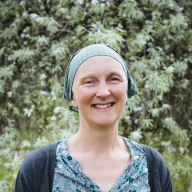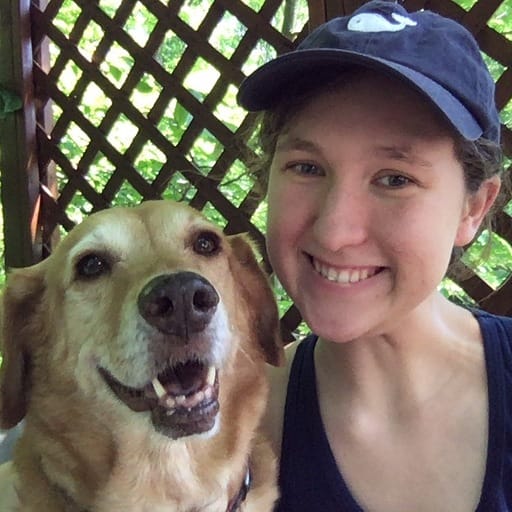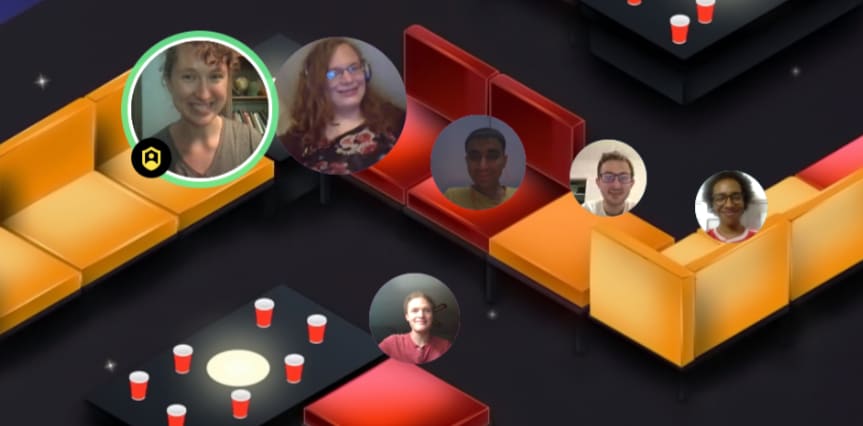
Catherine Low🔸
Bio
I'm one of the Community Liaisons for the EA community (alongside Julia Wise and Charlotte Darnell).
I'm a contact for community health support for EA groups, and I also works on assessing and mitigating risks to the EA community.
I initially studied a lot of physics, then was a high school teacher for 11 years before moving full time into EA community building. I ran local and national EA groups and worked on EA outreach projects, before joining CEA’s Groups Team in early 2020 to support EA groups worldwide. I started working for the Community Health team mid 2021.
Posts 20
Comments120
I'm a bit of a Benthamite "The question is not, 'Can they reason?' nor, 'Can they talk?' but rather, 'Can they suffer?'"
For any plausible (to me) guess about which non-human animals are capable of suffering, there are far far more non-human animals living in terrible conditions than humans in similarly bad conditions, and there just seems to be so many underfunded and underexplored ways we could help reduce that suffering. I've also seen some cost-effectiveness estimations that indicate you can help thousands of animals a lot for the same cost as helping one person a lot. ("a lot" being very vague!)
The only reason why I'm not at 100% agree is because helping humans become healthier might cause larger positive flow on effects, and this might add up to more impact in the long run. That's super tentative and could go either way - e.g. it seems possible that helping animals now could lead to our species being more ethical towards sentient beings in the long run too.
Thanks for your questions James
> This should therefore be easily transferable into feedback to the grantee.
I think this is where we disagree - this written information often isn’t in a good shape to be shared with applicants and would need significant work before sharing.
> The post you linked by Linch and the concern he raises that by being transparent about the reasons for not making a grant may risk applicants overupdating on the feedback seems unfounded/unevidenced. I also question how relevant given they weren't funded anyway, so why would you be concerned they'd over update?
The concern here is that people can alter their plan based on the feedback with the hope it would mean that they’d have a better chance of getting the opportunity in the future. As Linch says in his post
> Often, to change someone’s plans enough, it requires careful attention and understanding, multiple followup calls, etc.
I’ve personally seen cases where it seems that feedback sends a project off in a direction that isn’t especially good. This can happen when people have different ideas of what would be reasonable steps to take in response to the feedback.
But you’re right, Linch and I don’t provide evidence for the rate of problems caused by overupdating. This is a good nudge for me to think about how problematic this is overall, and whether I’m overreacting due to a few cases.
> If you don't tell them they were a near miss and what changes may change your mind, then instead the risk is they either update randomly or the project is just completely canned - which feels worse for edge cases.
I think it is most useful for decision makers to share feedback when a) it is a near miss, and b) the decision maker believes they can clearly describe something that the applicant can do that would make the person/project better and would likely lead to an approval.
Hi Frida,
I’m really sorry you had a bad experience with our team. You are welcome to share your experience with our team lead Nicole (nicole.ross@centreforeffectivealtruism.org).
Sometimes people want to discuss a concern with us confidentially – our confidentiality policy is outlined here. This means we sometimes don’t have permission to talk to the person concerned at all, or can't share many details as it might identify the people that came to us. In those cases we sadly aren’t in a good position to discuss the situation in depth with the people involved. I realise it is really frustrating to receive only vague feedback or none at all, and in an ideal world this would be different.
The EA donation swap project has had very little usage over the last couple of years and has been officially discontinued.
You can find out about tax deductible effective giving options in your country by checking out Giving What We Can's guide.
I’d like for Marisa to be remembered for all the many ways she contributed to the EA Community, and the causes we all care about.
She contributed in so many ways, that I know I’m going to miss a bunch of things. I guess that was one striking feature of Marisa – she saw things that needed to be done, or heard people’s requests for help or advice, and she didn’t hesitate to leap in to help. In particular, she did an impressive amount to help us be a welcoming, inclusive and supportive community for newcomers to EA and to people of backgrounds underrepresented in EA.
I think she really embodied the EA principles. Many of the things she did were unpaid, unglamorous, and sometimes tedious. But she took on all these tasks with eagerness because they were important and needed doing.
This is certainly not a full list - please feel free to add more information if you know it.
- In her early EA days (2017) Marisa volunteered at Rethink Charity, helping out across a number of Rethink Charity projects, and was hired part time to work on operations. We could throw her a wide variety of problems and could deeply trust that she’d somehow manage to work them all out.
- During this time she studied Sociology at Loyola University in New Orleans (with a semester in Ghana), and wrote an undergrad thesis on Value Drift in EA. This was shared and discussed a bunch over the years and was awarded an EA Forum prize. She also spent some time during this period in Uganda, volunteering at an agricultural development charity.
- When she finished her degree, she worked full time at Rethink Charity – keeping the org running smoothly; helping run RC Forward, a charity that allows Canadian donors to donate to the world’s most effective charities; and Giving Tuesday coordination, among other things.
- Alongside her work she helped coordinate ops information sharing through Ops Slack, offered her time readily to have calls and EAG meetings with community members interested in working in ops.
- She helped run a bunch of online things during Covid, including the EA Student Summit (a 2 day online conference during Covid), and EAGxAsia-Pacific.
- She volunteered for ALLFED doing operations work.
- With SamiM, she started EA Anywhere, a virtual group for people who don't live near or can't attend local EA group meetups. She mostly ran this in her free time – running online meetups, having 1:1s with folks new to EA, and coordinating the other EA Anywhere volunteers. She secured funding in order to hire a new full time community organiser (Sasha) so she could work on other things.
- On the back of her experience with EA Anywhere, she worked part time for several months with me on the CEA Groups team, creating resources for EA Groups and writing the monthly EA Groups Newsletter.
- In the last few years Marisa studied for a Masters in Public Policy at Georgetown University in DC, while also
- Working on operations and community building at the Legal Priorities Project
- Working on operations for Effective Institutions Project
- Acting as a research assistant at fp21
- Interning with the Department of State’s Knowledge Management Program.
I’m devastated by this news. From the first time I worked with Marisa, 7 years ago, it was clear she had a deep compassion for others (human and animal), an ability to authentically connect with a wide range of people, a sharp mind, fantastic sense of humour, and unwavering motivation.
During these last couple of years where Marisa was desperately unwell, I always hoped that she would one day hit on some successful treatment for her agonising illness and she’d make her way back to the optimistic, future focussed, extraordinarily driven person I first got to know and love.
It is just so sad – for her, for all those who cared about her, and for those lives she was yet to touch. My heart goes out to all her friends, family, her former colleagues, and her dog Chance.
Marisa with a dog (a different dog, not Chance)
This is Chance
Marisa at an EA Anywhere meetup.
I think the general question of whether enlightenment is real, and if so how could more people achieve it, is a very interesting one and I'd be interested in reading more about.
I did want to note that I don't think that Spencer's twitter poll is much evidence for your headline statement "More than 50% of EAs probably believe Enlightenment is real". I think the EAs people who follow Spencer, and choose to respond to this poll are going to be a reasonably skewed section of the community.
Given that EAGx Utrecht might be the most convenient EAGx for a good chunk of Western Europe, I'm not sure how important it is to have a goal for a % speakers with strong Dutch connections rather than Europe connections. But the density of talented Dutch folk in the community is very high, so you might hit 35% without any specific goal to do so.
Thanks for the public update. Some readers might also be interested in what actions and decisions EV and the Community Health team have been taking around this.
- Over the last 9 months Owen has not been allowed to attend EV-run events and in-person spaces (like EA Global and EV run offices). EV exec is currently deciding how EV will interact with Owen going forward, and are planning to publish that in the future. They have sought external advice and advice from our team.
- We are in communication with Owen about professional updates on his end so we can check in about safeguards where relevant. We have given him some advice aimed to prevent possible future harm.
People actively considering the choice of whether to work with Owen based on the balance of information available are welcome to reach out to us for input as part of their decision making process. Feel free to reach out to me (catherine@centreforeffectivealtruism.org) if you are in this position.




Our World In Data has amazing daily data insights. This one from a couple of days ago is astonishing to me. https://ourworldindata.org/data-insights/in-the-last-30-years-almost-everybody-in-bangladesh-gained-access-to-electricity